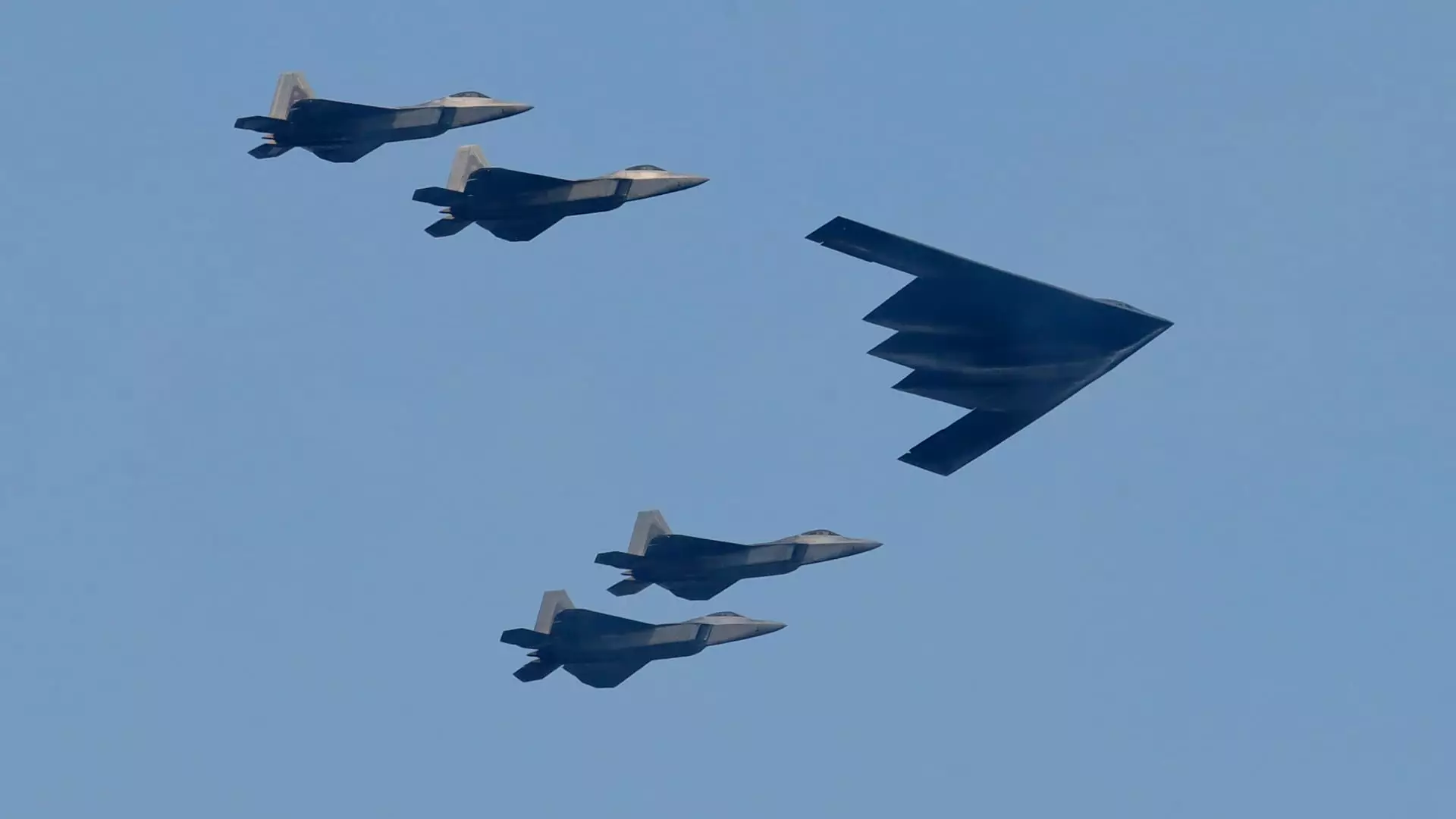In an audacious proclamation that vibrated across international channels, President Donald Trump heralded a significant military offensive against Iran, dubbing it a “very successful attack” on three nuclear facilities, including the critical Fordow site. Such triumphant rhetoric reflects not only a mindset of militaristic dominance but also a catastrophic disconnect from the realities of diplomacy and global stability. Trump’s jubilant sentiments on social media may resound with his base as a definitive moment for America, but in truth, the ramifications of this aggression threaten to exacerbate long-standing conflicts with dire consequences for millions.
The bravado embedded in Trump’s assertion—“This is an HISTORIC MOMENT”—is alarming. It embodies a dangerous narrative that emphasizes strength through violence while dismissing the subtleties of diplomacy and international discourse. Throughout history, such notions of power have led to tragic outcomes, from the Vietnam War to the Iraq invasion; the belief that bombast equates to progress is a myth propagated by leaders seeking approval through militaristic gestures.
The Unwavering Voice of Caution
Immediate reactions from the global community reveal a stark contrast to Trump’s self-congratulatory tone. United Nations Secretary-General Antonio Guterres issued a resolute warning against the escalating conflict, rightly pointing out the perilous spiral into chaos that military solutions engender. Guterres’s insistence that there is “no military solution” to the conflicts in the Middle East speaks to a widely acknowledged yet often ignored truth: dialogue and diplomacy are the only viable pathways towards sustainable peace.
Disregarding this wisdom, the U.S. military’s aggressive actions not only provoke Iran but simultaneously undermine global efforts to negotiate and stabilize the region further. By preemptively striking at Iran’s nuclear capabilities, the U.S. risks igniting a broader conflict that could spiral out of control. The historical precedent is clear; military intervention rarely yields the intended peaceful resolutions but often results in prolonged suffering and instability.
A Chorus of Condemnation
Across the globe, leaders from various nations echoed similar sentiments of condemnation. Venezuela’s Minister of Foreign Affairs Yvan Gil articulated a scathing critique of the U.S. intervention, describing it as “military aggression” that exacerbates tensions rather than resolving them. The resounding outcry from other nations including Cuba and Mexico emphasizes a growing consensus that military interventions only exacerbate crises and violate international law.
Cuba’s President Miguel Diaz-Canel and Mexico’s Ministry of Foreign Affairs articulated a clear desire for diplomatic dialogue, highlighting the urgent need for de-escalation in the Middle East. Their calls for peaceful negotiation challenge the narrative of power as defined by military strength. It is through such diplomatic engagements that combatants can aspire toward coexistence and shared prosperity, rather than fostering antagonism and fear.
The Blind Alley of Nationalism
Trump’s ethos of “peace through strength” resonates with nationalist sentiments that dominate political discourse today, yet it willfully overlooks the necessity for collaborative international relations. In an interconnected world fraught with the complexities of diplomatic relations and cultural interdependencies, a focus on unilateral military might is not just outdated; it’s perilous.
Were we to adopt a perspective rooted in liberalism, one that champions cooperation over coercion, it is essential to recognize that true strength lies in the ability to engage across divides. Threatening consequences for those who oppose us will only further entrench adversarial positions rather than foster understanding. The world stands at a crossroad, and we must ask ourselves: does the path of aggression garner respect, or does it sow the seeds of resentment that blossom into unremitting hate?
As the dust settles on Trump’s military maneuvers, we must look beyond immediate effects and consider long-term repercussions. An ideology that insists on aggressive actions for peace ultimately paves the way for conflict and unrest. The world deserves better than a perpetual cycle of violence masquerading as strength. Embracing a diplomatic framework rooted in mutual respect and understanding is not merely aspirational—it is imperative for our collective survival in the ever-evolving global landscape. In this critical juncture, let us embrace true strength derived not from fear but from the audacity to negotiate and listen.

